The 2018 PyeongChang Winter Olympics are opening on Feb. 9, bringing athletes and spectators from around the world to South Korea’s Gangwon Province.
This will mark the first time in the last 30 years that the Winter Olympics will take place in South Korea, since Seoul held the Olympic Games in 1988. From Feb. 8 to Feb. 25, spectators will be treated to a total of 102 events taking place across PyeongChang, Jeongseon, and the coastal city of Gangnueung.
To get ready for the Games, here is a breakdown of when and where the major events of the 2018 Winter Olympics will take place, and what you can expect to see while you’re there.
Olympics Opening Ceremony Date
The Winter Olympics opening ceremony will take place on Feb. 9 at 8 p.m. local time (6 a.m. EST) in the PyeongChang Olympic Stadium. The two-hour ceremony will feature a peace theme and include a cast of about 2,000 performers as well as the traditional parade of athletes, raising of the Olympic flag and lighting of the Olympic flame.
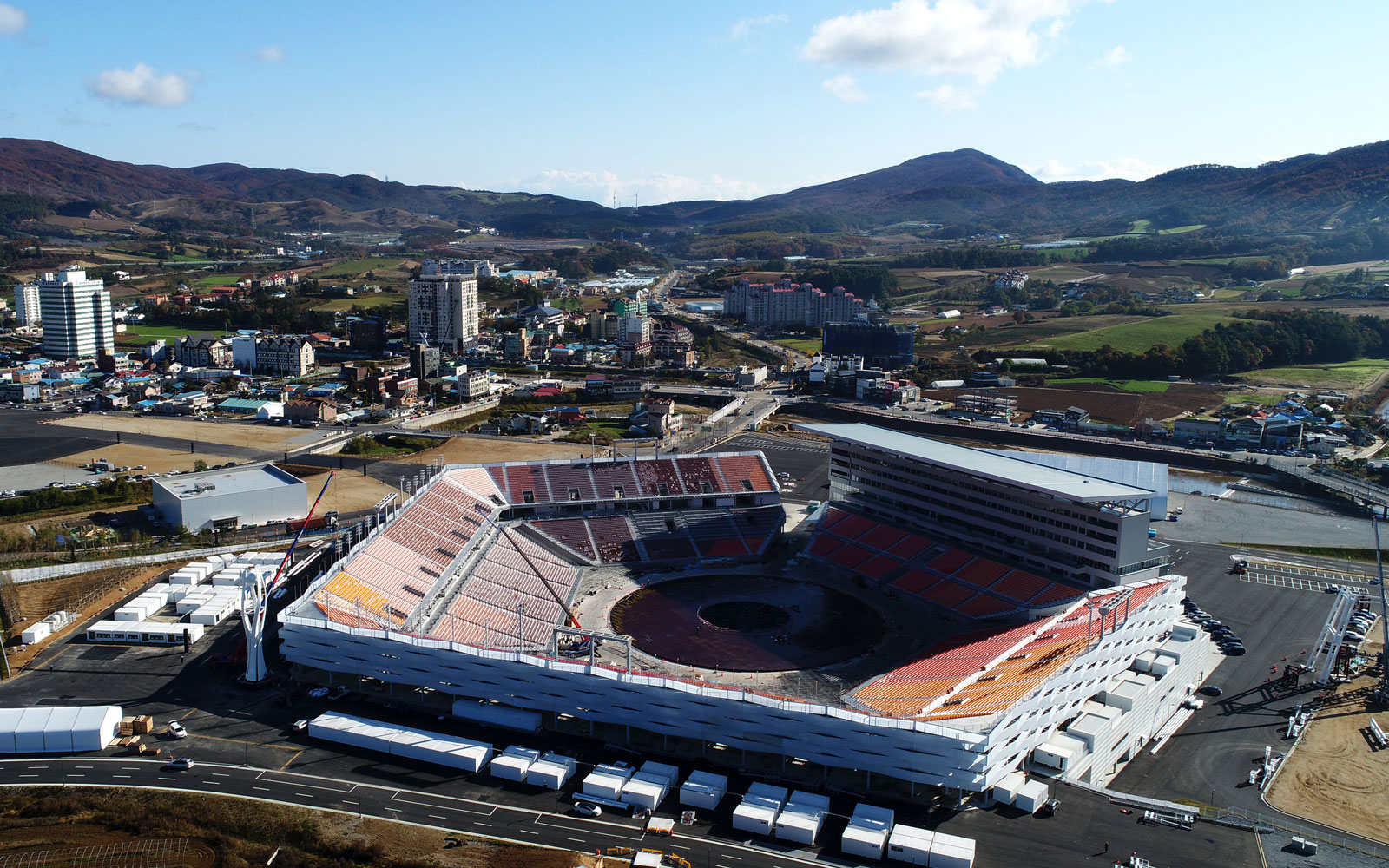
Those attending in person will receive bags that include a raincoat, a lap blanket, knit caps, a seat cushion and hand and feet cushions. The opening ceremony venue will house 10 concession stands, mobile food stores and 16 rooms with wind breakers for those who need warm up.
Biathlon Dates
Biathlon competitions will also kick off on Feb. 10, starting with the women’s 7.5 km Sprint. The full biathlon dates schedule is as follows:
All biathlon events will take place at the Alpensia Biathlon Center at the Alpensia Resort in PyeongChang. The center has enough space to accommodate 7,5000 spectators, with 4,500 seats and enough standing room for 3,000 viewers.
Cross-Country Skiing Dates
Cross-country skiing competitions will also start on Feb. 10 at the Alpensia Cross-Country Skiing Center.
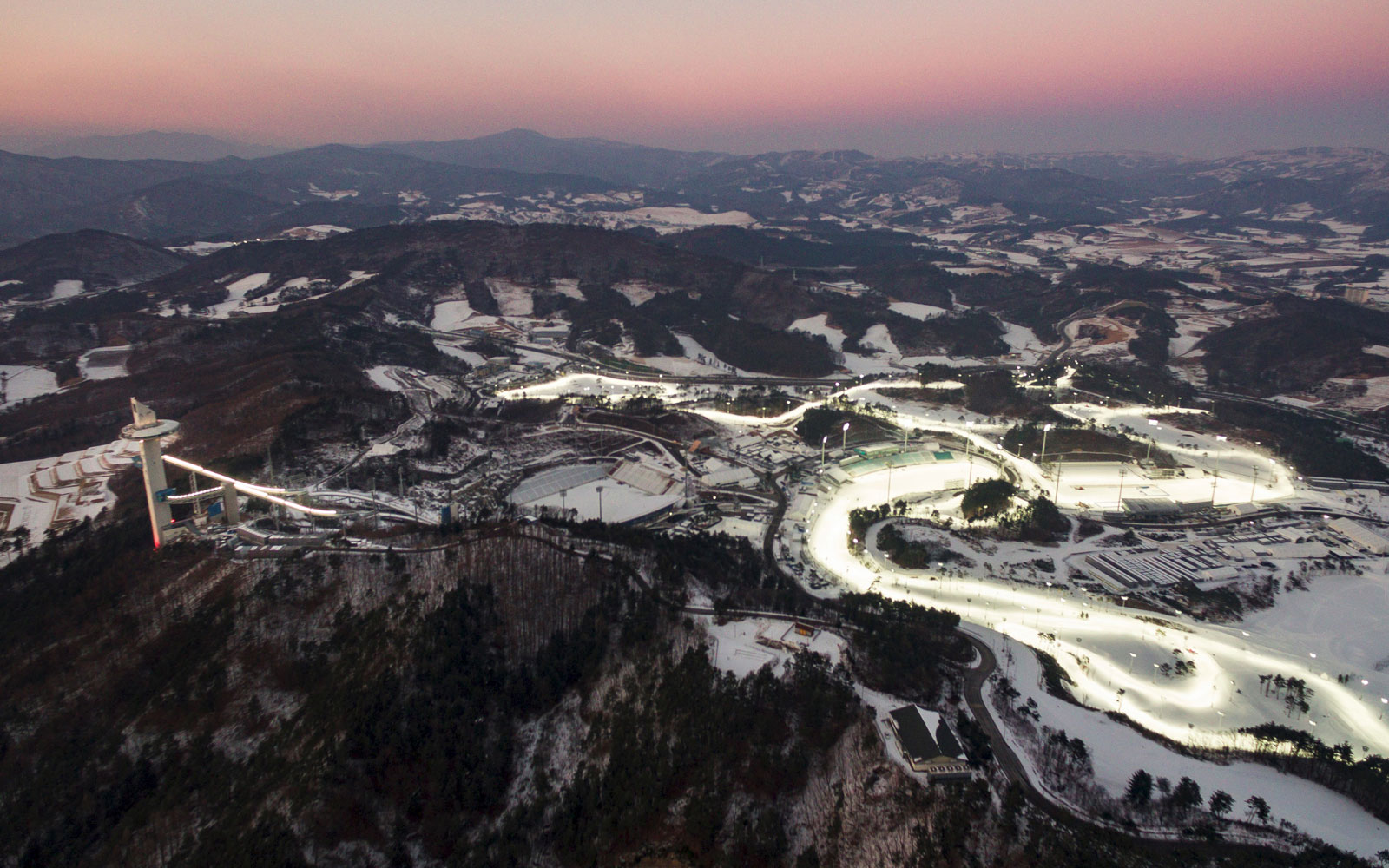
Cross-country begins with the women’s 7.5km and the 7.5km Skiathlon, and continues with the following schedule:
Short Track Speedskating Dates
Ice sports will take place at the venues located within the coastal city of Gangneung. Short track speedskating will start on Feb. 10 at the Gangneung Ice Arena with both the men’s 1,500m finals and the women’s 500m qualification and 3,000m relay qualification.
Short track speedskating will have the following schedule:
The Gangneung Ice Arena, which is home to two ice rinks and a total of 12,000 seats, is set to display color-changing exterior lights at night to put on a spectacle of its own for visitors.
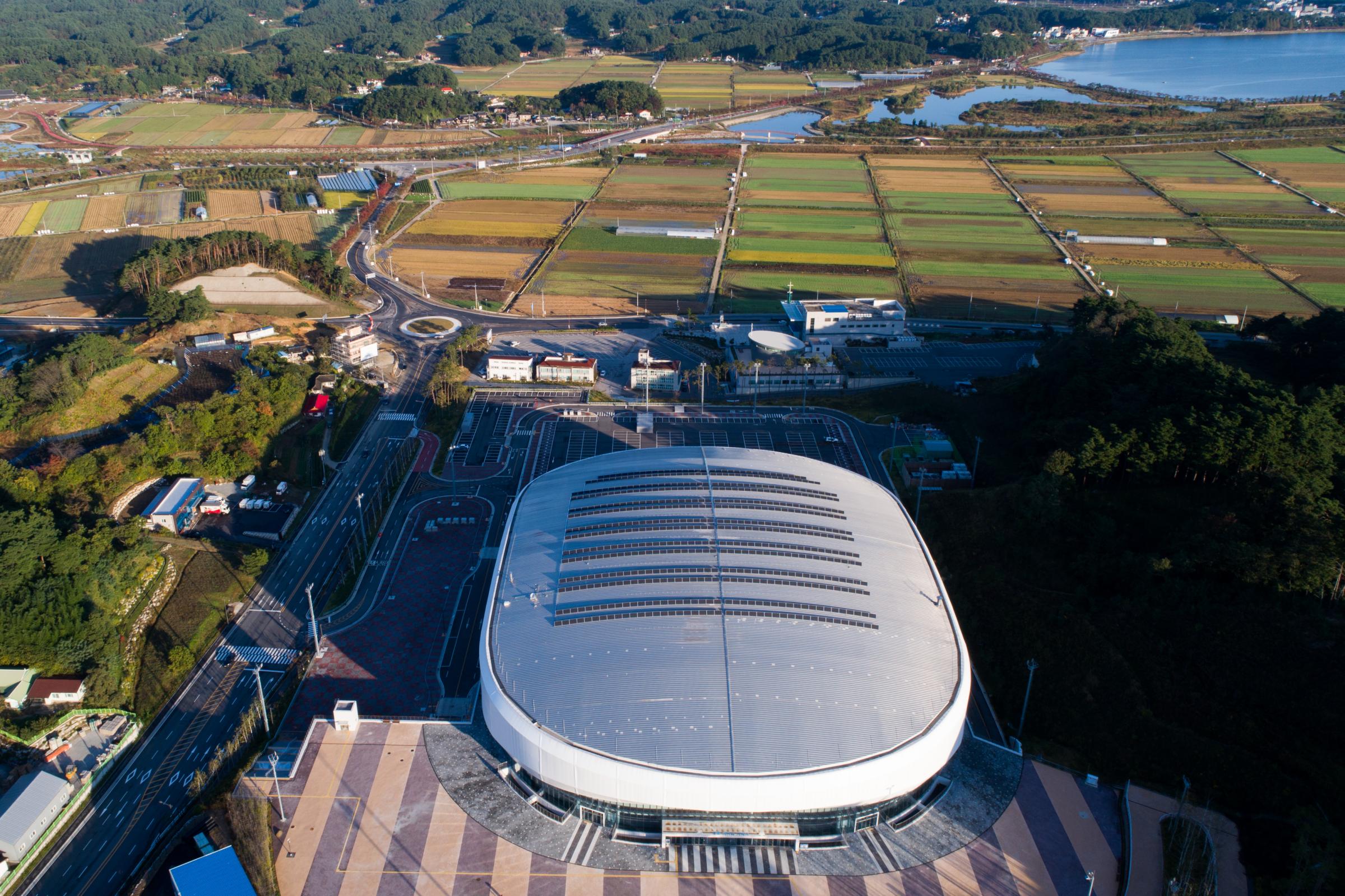
Ski Jumping:
Ski jumping will take place at the Alpensia Ski Jumping Centre, which houses two slopes with steep drops and enough room for 8,500 spectators.
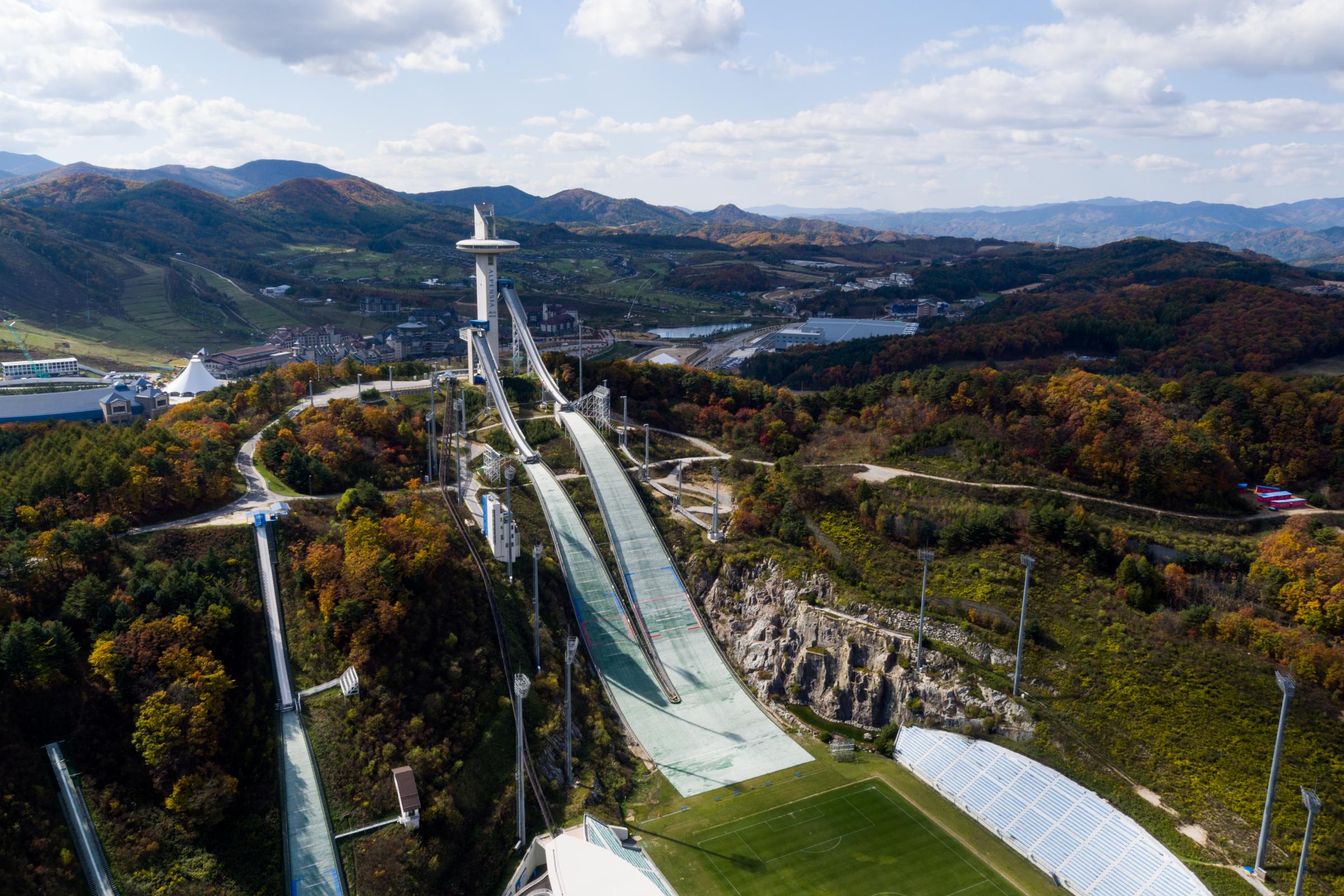
Spectators will head back to the Alpensia Resort, where the centre is also located, to catch the ski jumping events, which also start on Feb. 10 with the men’s normal hill individual finals, and continue throughout with the following schedule:
Speedskating:
For speed skating, competitors and visitors will head to the Gangneung Oval, located within the Gangnueung Olympic Park, which fits 8,000 spectators and includes a 400-meter double track. The venue was constructed between October 2014 and March 2017 for the Olympic games.
Speed skating starts on Feb. 10 with the women’s 3,000m and continues as follows:
Snowboarding:
Snowboarding events start with the men’s slopestyle qualifiers on Feb. 10, while finals kicks off on Feb. 11. The schedule for snowboarding events, beginning with the Feb. 11 finals, includes:
While the women’s and men’s big air qualifiers and finals will take place at the Alepnsia Ski Jumping Centre, the remainder of the snowboarding competitions will be held at Phoenix Snow Park.
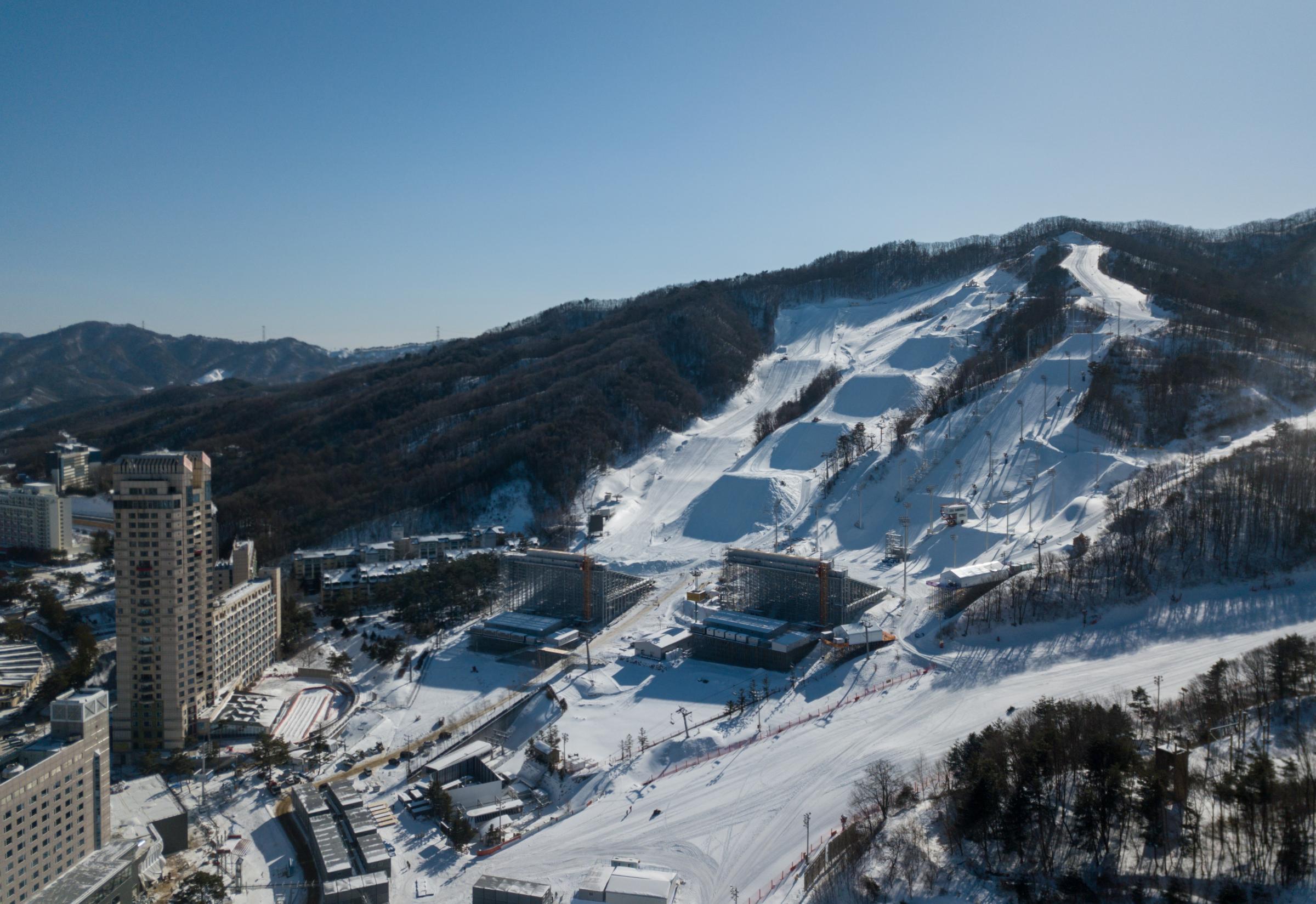
Located at the foot of Mt. Taegi in Bongpyeong-myeon, the ski jumping center is home to half pipes, jumps and moguls, as well as a children’s ski school, an arcade, an indoor and outdoor swimming pool, a bowling alley, restaurants and shops.
Alpine Skiing:
Alpine Skiing starts on Feb. 11 with the men’s downhill and continues as follows:
The alpine skiing events will be split between both the Jeongseon Alpine Centre, located within the remote Gariwang mountains, and the Yongpyong Alpine Centre, in the Yongpyong Resort. Yongpyong is considered one of South Korea’s most popular ski resorts and its 250 centimeters of snowfall per season makes for prime skiing conditions.
Freestyle Skiing:
Freestyle skiing will also take place at Phoenix Snow Park, with both the women’s and men’s mogul qualifiers starting on Feb. 9. Freestyle skiing events continue with the following schedule:
Luge, Bobsleigh, and Skeleton Dates:
Luge events begin with men’s qualifiers on Feb. 10 and the women’s qualifiers on Feb. 12, with the full schedule as follows:
Skeleton events start on Feb. 12 and wrap up by Feb. 17, with the full schedule below:
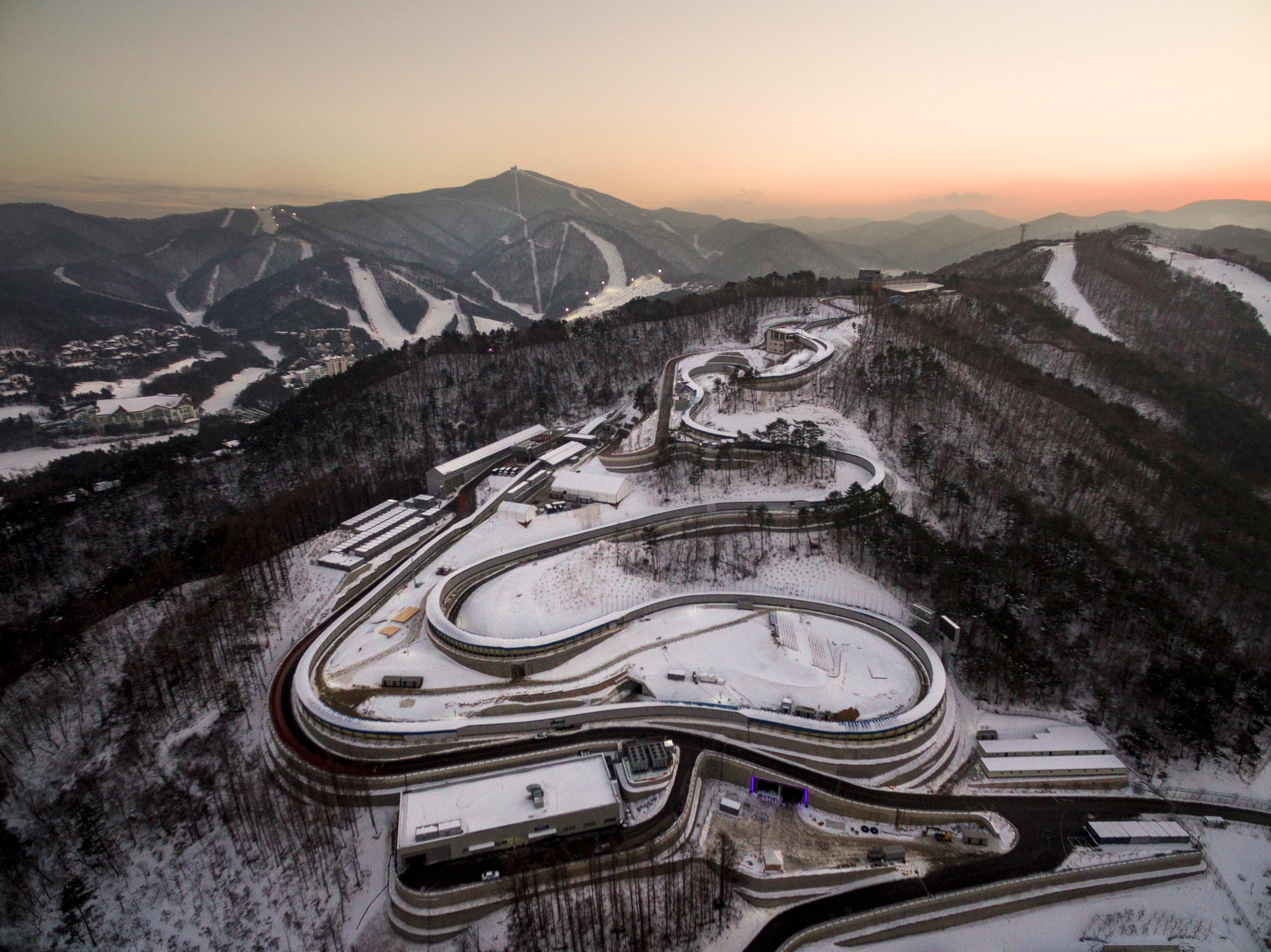
Bobsleigh events start toward the end of the Winter Olympics, with qualifiers taking place on Feb. 18. The remainder of bobsleigh event dates are as follows:
All luge, bobsled and skeleton events will be at the Olympic Sliding Centre, which is located in the PyeongChang Mountain Cluster. The area, with its winding outdoor courses, can accommodate 6,000 standing spectators and 1,000 seated.
Figure Skating:
Figure skating starts with the men’s single short program team event on Feb. 9, while the women’s program will begin on Feb. 11. Figure skating will also be held in the Gangneung Ice Arena with the schedule continuing as follows:
Curling:
Curling will take place in the Gangneung Curling Centre and start on Feb. 8, continuing with the following schedule:
The Gangneung Curling Centre, located in the Gangneung Olympic Park, was originally built in 1998 and renovated between 2015 amd 2016. The building includes four ice curling sheets and enough enough room for 3,500 spectators, making it a popular location for international competitions like the ISU Four Continents Figure Skating Championships, the ISU Short Track Speed Skating World Championships, and the Women’s World Curling Championship.
Ice Hockey:
The preliminary rounds for ice hockey kick off on Feb. 10 and continue with preliminary and qualification rounds for both men and women through Feb. 20.
The schedule after the 20th includes:
The Gangneung Hockey Centre, located in the Gangneung Olympic Park, is the primary venue for ice hockey competitions. The venue, which features an international sized rink measuring 60m x 30m, has capacity for 10,000 spectators.
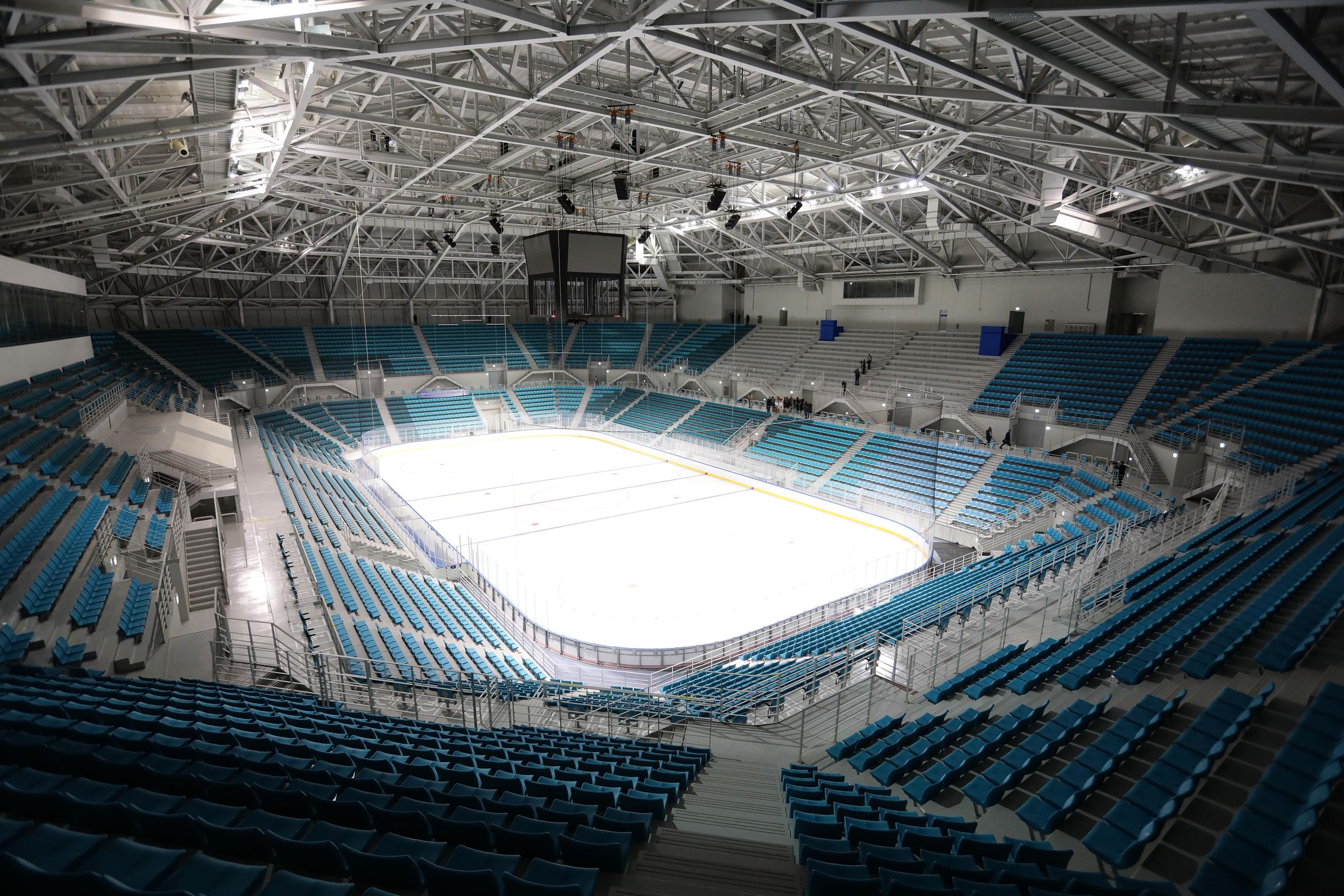
Meanwhile, the Kwandong Hockey Centre, which is located just outside of the Gangneung Olympic Park, will be the secondary venue for the competitions and will host the majority of preliminary rounds and quarterfinal games for the women’s tournaments.
Nordic Combined:
The Nordic combined events will take place on Feb. 14 with the men’s individual normal hill and individual 10 km, while men’s large hill will take place on Feb. 20. Both the men’s team large hill and men’s team 4 by 5 km will wrap up on Feb. 22, with events taking place in the Alpensia Resort at the Alpensia Ski Jumping Centre and the Alpensia Cross-Country Skiing Centre.
Closing Ceremony:
The closing ceremony will also be held at the PyeongChang Olympic Stadium on Feb. 25 at 6 a.m. E.T. with broadcasts available at 8 p.m. E.T. on NBC.
The theme for the closing ceremony will be perseverance, and the event will feature the mayor of PyeongChang, Seok-Rae Lee, pass the Olympic flag to International Olympics Committee President, Thomas Bach, who will carry the tradition of passing it to the mayor of the next host city.
In this case it will mayor Chen Jining of Beijing, where the next Winter Olympics will take place in 2022.
More Must-Reads from TIME
- Donald Trump Is TIME's 2024 Person of the Year
- Why We Chose Trump as Person of the Year
- Is Intermittent Fasting Good or Bad for You?
- The 100 Must-Read Books of 2024
- The 20 Best Christmas TV Episodes
- Column: If Optimism Feels Ridiculous Now, Try Hope
- The Future of Climate Action Is Trade Policy
- Merle Bombardieri Is Helping People Make the Baby Decision
Contact us at letters@time.com